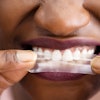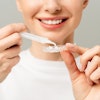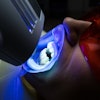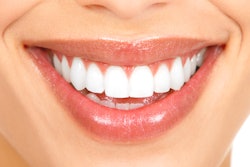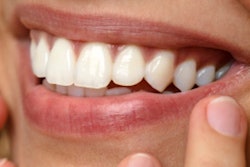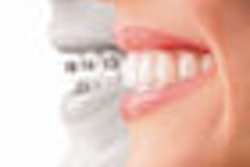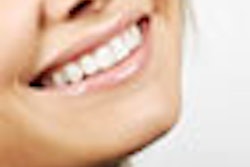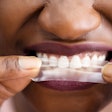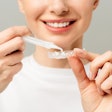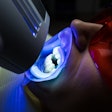
Cosmetic dentists can attest to the popularity of dazzling white smiles. But a new study questions whether the whitest smiles are always the best way to go.
Dental practitioners and patients alike do not always favor the whitest smile, nor do they perceive all skin colors to be equally attractive with bright white teeth, according to a study by U.K. researchers.
“The dentist must ... provide treatment that is in the best interest of the patient.”
— Farhad Naini, B.D.S.
"The main finding of the study is that skin tone is an important parameter that must be taken into account during the diagnostic phase of patient management; the possible risk is that excessive whitening, particularly in patients with darker skin tone, may be perceived as unattractive," study author Farhad Naini, B.D.S., a consultant in the orthodontic department at St. George's Hospital in London, told DrBicuspid.com.
The study looked at the influence of variations in skin tone on the perceived attractiveness of different tooth shades and whether all skin tones were equally attractive with bright, white teeth, Dr. Naini explained.
"Previous studies examining the effect of tooth shade on perceived attractiveness have included only white subjects," the study authors noted. "No study, to our knowledge, has investigated the influence of variations in skin color and tooth shades on perceived attractiveness" (Journal of the American Dental Association, June 2009, Vol.140:6, pp.696-705).
The researchers queried 70 dentists and 70 laypeople for the study. The participants got very little information about the study and were not aware of the purpose of the study.
The researchers then selected a digital photograph of a woman's smile that exhibited good dental alignment and tooth-size symmetry. The photograph showed the teeth, lips, and surrounding skin, but the nose and chin were cropped out to reduce the number of confounding variables. The image was then digitally manipulated to create 24 images with varying skin colors and tooth shades.
The skin and lip shades had four tones (fair, fair/medium, medium/dark, and dark), and the tooth shade value (brightness) varied from 00 (brightest) to 05 (darkest).
Study participants looked at a slide show presentation on a 15-inch laptop computer, with the images displayed on a black background and arranged in random order. They scrolled through the images in the slide show at their own pace.
- Dentists gave the highest rating to the image with fair/medium skin and a bright tooth shade (02), while laypeople preferred the image with the fair/medium skin and brightest tooth shade value (01).
- For the brightest tooth shade (00), fair, fair/medium, and medium/dark skin images were rated higher than the dark skin image. For the dark skin, 92% of participants stated that the teeth were "too bright."
- For images in the 01 group, subjects rated the fair/medium skin higher more attractive than the other skin colors.
- As the brightness of teeth decreased (tooth shade values 03, 04, and 05), subjects rated fair skin images lowest among the four skin tones.
- For the darkest tooth shade value (05), participants preferred the medium/dark and dark skin images to fair and fair/medium skin images.
- Of all 24 images, the image with the fair skin and darkest tooth shade value (05) received the lowest overall rating.
"The results of this study show that variations in skin color for most tooth shade values influenced perceived smile attractiveness," the authors wrote. "Dentists and laypeople did not perceive the brightest tooth shade as the most attractive, and they did not perceive all skin colors as equally attractive with bright white teeth."
These results are relevant to today's popular tooth-whitening market, as well as to the prosthodontic rehabilitation of the anterior dentition, they added.
"The findings of this study may be particularly significant to patients requesting tooth-whitening procedures," the authors noted. "Dentists need to educate patients requesting tooth-whitening procedures or alternative aesthetic enhancement of the anterior teeth about the possibility that excessively bright white teeth may be perceived as too bright depending on their skin tone."
Clinicians must never take anything for granted in clinical practice, Dr. Naini told DrBicuspid.com.
"Tooth-whitening procedures are not technically demanding," he added. "The issue is that the dentist must have the ability to diagnose each patient and provide treatment that is in the best interest of the patient."
Copyright © 2009 DrBicuspid.com
